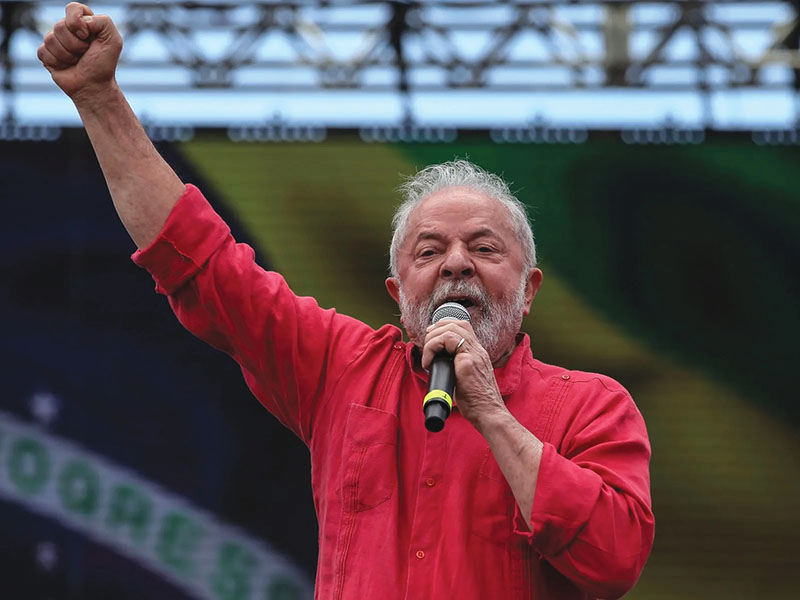BRAZIL: Return to normalcy

President Lula: wage increases & scholarships
High-profile “exiled” academics have returned to Brazil after a “change in atmosphere” in the year since Jair Bolsonaro lost the presidency. But the polarised country could now face strikes as higher education continues to suffer from years of underfunding.
Hampered by a hostile legislature and spending restrictions, Luiz Inacio Lula da Silva — known as Lula — has struggled to implement many concrete reforms since returning to the presidency in January 2023, but researchers say his pro-education stance and commitment to science has left them feeling more secure than under his predecessor. “For science, technology and education, there is a period of calm that we did not see during the last government,” says Marcelo Knobel, professor of physics and former rector of the University of Campinas (Unicamp). “The people who are in charge of the main agencies, the ministers, they are serious people who believe in science and higher education. At the same time, not many changes can be made. It is very hard to negotiate in the legislative houses, there is a lack of money, and it is very difficult to introduce new discussions and ideas in this climate of constant polarisation,” says Knobel.
Many universities were unable to pay for basic necessities due to budget cuts during Bolsonaro’s term and university lecturers and professors have seen their pay frozen since 2016. In his first year, Lula handed academics a 9 percent wage increase and upped the funding for Masters and Ph D scholarships in an attempt to stem the declining number of postgraduate students. Hiring freezes imposed on universities were also lifted and some saw their budgets begin to recover.
But Lula’s government has signalled that no further pay rises will come this year, instead proposing a 9 percent increase over the next two years as well as increasing other allowances. Lola Aronovich, a literature professor at the Federal University of Ceara, says that while academics welcome movement after the long freeze, it was “not enough to cover what we lost” and cautions that there could be strikes this year as a result.
Jean Wyllys, an academic and former congressman, whose decision to leave Brazil in 2019 was hailed as a “great day” by Bolsonaro himself, has returned to the country, as has Marcia Tiburi, a philosophy professor who fled to Paris after receiving online death threats from right-wing groups.
Dawisson Lopes, a professor of international and comparative politics at the Federal University of Minas Gerais, who spent part of the Bolsonaro years in the UK, says many academics had felt the need to leave Brazil because of the “critically inhospitable conditions for research” and politicisation of teaching. “I returned because the political atmosphere was changing in the country, so it was safe for me and my family to come back to Brazil. When I say safe, I do mean physical safety,” he says.
Bolsonaro has been barred from standing in 2026, but the ideology he inspired will continue to be a force in the country, with some suggesting his wife, Michelle, might be convinced to run. Prof. Lopes says that whatever happened, public universities should be taking steps to shield themselves against any further political or economic shocks.
“The Brazilian system is still over-reliant on public money. This is a problem we have to tackle in the coming years. I don’t mean public money should be taken away, but it is time for Brazilian universities to start diversifying their sources of funding. I don’t see any future for universities that are so reliant on public funds,” says Lopes.
Also read: Brazil: Academia favours Lula

















Add comment